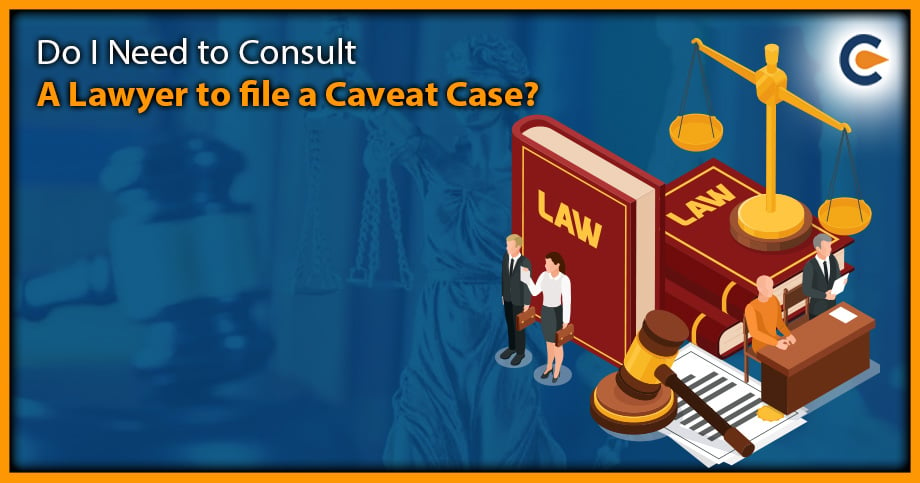The CPC has granted a person a power known as a caveat so that they can avoid ex-parte judgements in civil cases. In accordance with Section 148-A of the Civil Procedure Code of 1908,[1] a caveat petition is a preventative step taken by a person who is extremely anxious that other legal proceedings would be brought against him or her in connection with any matter. This is generally a Latin phrase that means “let a person beware”. Thus, it is a legal document filed with the court or registrar by a person who wishes to be notified of any application or preceding that may affect their rights. Now the question arises: Is the consultation of a lawyer required for the filing of a caveat petition?
Meaning of Caveat
The Civil Procedure Code does not define the word caveat. It is derived from the Latin word which means “beware“. According to the dictionary, a caveat is an entry placed in a registry or court office’s book to prevent a particular action from being taken without first notifying the person who entered the caveat. The court described a caveat in the case of Nirmal Chand v. Girindra Narayan[1] as a caution made to the court that no decision or judgement may be rendered without notifying or hearing the Caveator (the person who submits the caveat). The purpose of this is to safeguard the interests of the Caveator and to prevent multiple proceedings in order to save the courts’ time, money, and inconvenience.
Need of Consulting a Lawyer
The procedure laid down for various judicial matters appears to be tedious for a layman. Thus, consulting a lawyer while filing a caveat is important for several reasons:
Understanding the Legal Requirements:
A lawyer can help you understand the legal requirements for filing a caveat, including the time limits, the appropriate court or registrar to file this, and the specific language and format required.
Assessing the Strength of Your Case:
A lawyer can review your situation and advise you on whether filing a this is appropriate, and what your chances of success may be. They can also help you evaluate the potential outcomes and implications of filing a caveat.
Drafting the Caveat
A lawyer can help you draft this document, which needs to be precise and meet specific legal requirements. They can ensure that the document accurately reflects your interests and will effectively protect your rights.
Avoiding Procedural Errors:
A lawyer can guide you through the process of filing this and ensure that you meet all the procedural requirements. This can help you avoid errors that could result in your caveat being rejected or not being effective in protecting your interests.
Developing a Legal Strategy:
A lawyer can help you develop a legal strategy to protect your interests, whether that involves filing this, negotiating with the other party, or pursuing legal action. They can advise you on the best course of action based on the specific facts of your case.
So, seeking legal advice before filing this is crucial to ensure that you successfully defend your interests and steer clear of any potential hazards.
Benefits of Consulting a Lawyer
The smallest error will result in the application being rejected, forcing the process to start over and increasing expenses, time, and effort. Therefore, it is usually preferable to seek the advice of a legal specialist who has received training in these processes and has a significant amount of first-hand expertise in the subject. A lawyer can help you develop a legal strategy to protect your interests, whether that involves filing this application, negotiating with the other party, or pursuing legal action.
The role of a lawyer in filing a caveat application can be significant. A lawyer has expertise and knowledge of the legal system and the process of filing this application. A lawyer can provide valuable guidance and support in the process of filing a caveat, ensuring that all legal requirements are met and the interests of the person filing this document are protected. They can advise you on the best course of action based on the specific facts of your case.
Conclusion
A caveat is a declaration made by an individual to the court stating that another person may bring a lawsuit or application against him and that the court must give the individual making the caveat a fair hearing before making any decisions in the case at hand. Although it is possible to file a caveat case without a lawyer, it is generally advisable to seek legal counsel to ensure that you take all necessary steps to protect your rights effectively.
Read Our Article: Who Can File A Caveat Petition?











